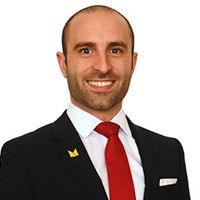North Hollywood Misdemeanor Lawyer, California
Sponsored Law Firm
-
 x
x

Click For More Info:
-
Gharibian Law, APC
101 North Brand Blvd. Suite 1970 Glendale, CA 91203» view mapMedical Malpractice Law Respect Your Elders
Our dedicated legal team can help your family reconcile with elder abuse, personal injury, and wrongful death.
877-875-1119
Daniel Moaddel
✓ VERIFIEDCriminal, DUI-DWI, Misdemeanor, Felony, Immigration
Moaddel Law is a criminal defense firm that provides comprehensive service from start to finish.
Daniel Moaddel is a criminal defense attorney serving Los Angeles, California.
Garret Weinrieb
Felony, Misdemeanor, DUI-DWI, White Collar Crime
Status: In Good Standing Licensed: 21 Years
FREE CONSULTATION
CONTACTSharon Paris Babakhan
Criminal, DUI-DWI, Felony, Misdemeanor
Status: In Good Standing Licensed: 13 Years
FREE CONSULTATION
CONTACTFREE CONSULTATION
CONTACTKaren Goldstein
Misdemeanor, Felony, DUI-DWI, Criminal
Seppi Esfandi
White Collar Crime, Misdemeanor, Felony, Criminal
Status: In Good Standing Licensed: 24 Years
FREE CONSULTATION
CONTACTNicholas Maurice Rosenberg
Misdemeanor, Felony, DUI-DWI, Criminal
Status: In Good Standing Licensed: 20 Years
FREE CONSULTATION
CONTACTBrian D. Lerner
Visa, Deportation, Immigration, Misdemeanor
Status: In Good Standing Licensed: 32 Years
FREE CONSULTATION
CONTACT Art Gharibian Glendale, CA
Art Gharibian Glendale, CA AboutGharibian Law, APC
AboutGharibian Law, APC


